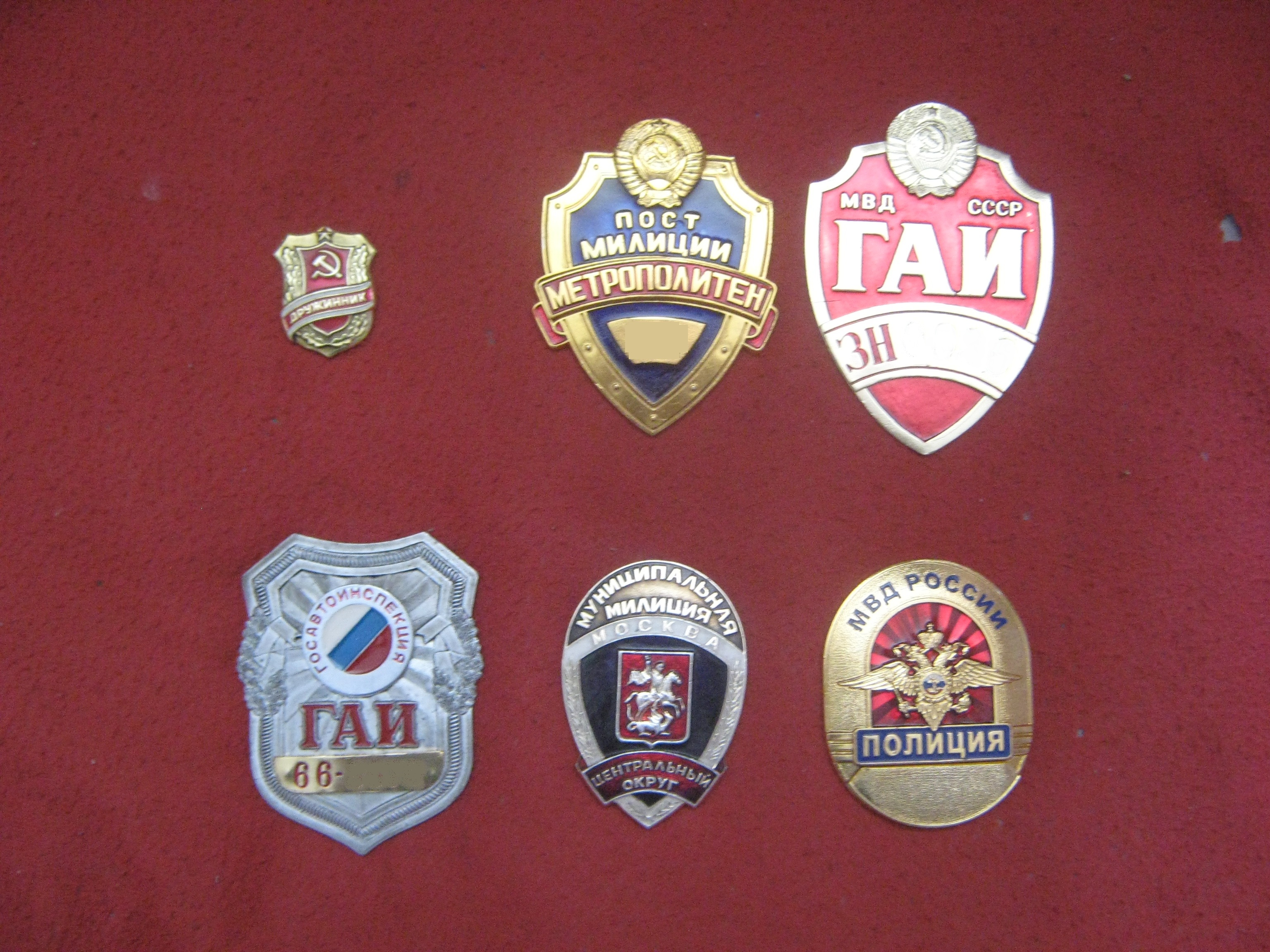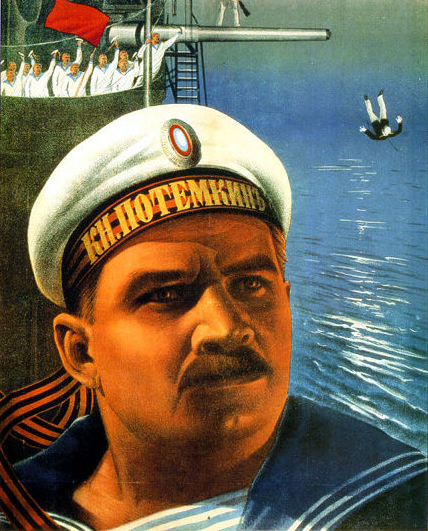|
A Girl With A Temper
''A Girl with Character'' (russian: Девушка с характером, Devushka s kharakterom) is a 1939 Soviet comedy film directed by Konstantin Yudin. The film featured acting debuts of Mikhail Gluzsky and Anatoly Solovyov. Plot The best farm worker Katya Ivanova travels to the district center, in search of truth and the possibility of punishing the director-bureaucrat Meshkov, who collapsed the once prosperous work in the Far East animal-breeding sovkhoz. On the way to the station, Katya manages to catch and pass over a saboteur to the border guards. She then rides the train without a ticket to write a complaint, which means that she has to work as a waitress in the dining car on the way to Moscow. On the train, Katya meets a sailor Sergei, but upon arrival in Moscow they lose each other. Katya is employed as a saleswoman in a fur shop and after that at a factory of gramophone records. At the same time she actively convinces female work colleagues to go to the Far East. ... [...More Info...] [...Related Items...] OR: [Wikipedia] [Google] [Baidu] |
Konstantin Yudin
Konstantin Konstantinovich Yudin (russian: Константи́н Константи́нович Ю́дин) (1896–1957) was a Soviet film director. Biography Born in the Semyonovskoe village near Dmitrov (now Dmitrovsky District, Moscow Oblast) into a Russian working-class family, one of the five children of Konstantin Ilyich Yudin, a miller who died in 1904. The kids then moved to the neighboring village to live with their grandparents. After graduating from school Yudin was brought to Moscow to work for hire. By the age of 18 he became a professional jockey working at the Moscow hippodrome. In 1917 he was suggested a place at the Pyatigorsk hippodrome. Shortly after the Russian Civil War started. Konstantin joined the Red Army and fought as part of the cavalry in the North Caucasus up till 1920, then returned to Moscow.Mikhail Volpin, Nikolai Erdman (1957). ''In the Memory of K. K. Yudin'' // The Art of Cinema № 4, page 153 (in Russian)Alexandr Ivanov. The Man Who Outplaye ... [...More Info...] [...Related Items...] OR: [Wikipedia] [Google] [Baidu] |
Militsiya
''Militsiya'' ( rus, милиция, , mʲɪˈlʲitsɨjə) was the name of the police forces in the Soviet Union (until 1991) and in several Eastern Bloc countries (1945–1992), as well as in the non-aligned SFR Yugoslavia (1945–1992). The term continues in common and sometimes official usage in some of the individual former Soviet republics such as Belarus, Tajikistan, Uzbekistan and Kyrgyzstan, as well as in the partially recognised or unrecognised republics of Abkhazia, South Ossetia, Transnistria, DNR and LNR. Name and status The name ''militsiya'' as applied to police forces originates from a Russian Provisional Government decree dated April 17, 1917, and from early Soviet history: both the Provisional Government and the Bolsheviks intended to associate their new law-enforcement authority with the self-organisation of the people and to distinguish it from the czarist police. The militsiya was reaffirmed in Russia on October 28 (November 10, according to the ne ... [...More Info...] [...Related Items...] OR: [Wikipedia] [Google] [Baidu] |
1939 Films
The year 1939 in film is widely considered the greatest year in film history. The ten Best Picture-nominated films that year include classics in multiple genres. Top-grossing films (U.S.) The top ten 1939 released films by box office gross in North America are as follows: Events Film historians often rate 1939 as "the greatest year in the history of Hollywood". Hollywood films produced in Southern California were at the height of their Golden Age (in spite of many cheaply made or undistinguished films also being produced, something to be expected with any year in commercial cinema), and during 1939 there are the premieres of an outstandingly large number of exceptional motion pictures, many of which become honored as all-time classic films. ** June 10 – MGM's first successful animated character, Barney Bear, made his debut in ''The Bear That Couldn't Sleep''. ** August 15 – ''The Wizard of Oz'' premiered at Grauman's Chinese Theatre in Los Angeles. ** October 17 ... [...More Info...] [...Related Items...] OR: [Wikipedia] [Google] [Baidu] |
1939 Comedy Films
This year also marks the start of the Second World War, the largest and deadliest conflict in human history. Events Below, the events of World War II have the "WWII" prefix. January * January 1 ** Third Reich *** Jews are forbidden to work with Germans. *** The Youth Protection Act was passed on April 30, 1938 and the Working Hours Regulations came into effect. *** The Jews name change decree has gone into effect. ** The rest of the world *** In Spain, it becomes a duty of all young women under 25 to complete compulsory work service for one year. *** First edition of the Vienna New Year's Concert. *** The company of technology and manufacturing scientific instruments Hewlett-Packard, was founded in a garage in Palo Alto, California, by William (Bill) Hewlett and David Packard. This garage is now considered the birthplace of Silicon Valley. *** Sydney, in Australia, records temperature of 45 ˚C, the highest record for the city. *** Philipp Etter took over as Swiss F ... [...More Info...] [...Related Items...] OR: [Wikipedia] [Google] [Baidu] |
Soviet Comedy Films
The Soviet Union,. officially the Union of Soviet Socialist Republics. (USSR),. was a transcontinental country that spanned much of Eurasia from 1922 to 1991. A flagship communist state, it was nominally a federal union of fifteen national republics; in practice, both its government and its economy were highly centralized until its final years. It was a one-party state governed by the Communist Party of the Soviet Union, with the city of Moscow serving as its capital as well as that of its largest and most populous republic: the Russian SFSR. Other major cities included Leningrad (Russian SFSR), Kiev (Ukrainian SSR), Minsk (Byelorussian SSR), Tashkent (Uzbek SSR), Alma-Ata (Kazakh SSR), and Novosibirsk (Russian SFSR). It was the largest country in the world, covering over and spanning eleven time zones. The country's roots lay in the October Revolution of 1917, when the Bolsheviks, under the leadership of Vladimir Lenin, overthrew the Russian Provisional Government tha ... [...More Info...] [...Related Items...] OR: [Wikipedia] [Google] [Baidu] |
Films Directed By Konstantin Yudin
A film also called a movie, motion picture, moving picture, picture, photoplay or (slang) flick is a work of visual art that simulates experiences and otherwise communicates ideas, stories, perceptions, feelings, beauty, or atmosphere through the use of moving images. These images are generally accompanied by sound and, more rarely, other sensory stimulations. The word "cinema", short for cinematography, is often used to refer to filmmaking and the film industry, and to the art form that is the result of it. Recording and transmission of film The moving images of a film are created by photographing actual scenes with a motion-picture camera, by photographing drawings or miniature models using traditional animation techniques, by means of CGI and computer animation, or by a combination of some or all of these techniques, and other visual effects. Before the introduction of digital production, series of still images were recorded on a strip of chemically sensitized ... [...More Info...] [...Related Items...] OR: [Wikipedia] [Google] [Baidu] |
Galina Kravchenko
Galina Sergeevna Kravchenko (Russian: Галина Сергеевна Кравченко; 11 February 19055 March 1996) was a Soviet actress. Biography Galina Kravchenko was born on 11 February 1905 in Kazan, Russian Empire (now Kazan, Tatarstan, Russia). After the Russian revolution of 1917, she moved to Moscow; there her mother worked in the Soviet Government. In 1923, in her mother's Moscow office young Kravchenko met Vsevolod Pudovkin, who was very impressed with her natural beauty and talent, and recommended her to the acting school at State Institute of Cinema (VGIK). From 1924 - 26 she studied acting under Vladimir Gardin, graduating as actress. During the 1920s and 1930s Kravchenko was a staff actress with Mezhrabpom Film Studio. She enjoyed a stellar career in Soviet silent films. Kravchenko was married to popular actor Andrei Fajt, and the couple was part of Moscow cultural milieu during the 1920s and early 1930s. During the 1930s she was married to the son of the powe ... [...More Info...] [...Related Items...] OR: [Wikipedia] [Google] [Baidu] |
Karandash
Mikhail Nikolayevich Rumyantsev (russian: Михаи́л Никола́евич Румя́нцев; 10 December 1901 – 31 March 1983), better known under his stage name Karandash (russian: Каранда́ш which means ''pencil''), was a famous Soviet clown.Biography in Italian , retrieved 27 April 2007. retrieved 27 April 2007. He was a People's Artist of the USSR and a Hero of Socialist Labour, and was the teacher of ... [...More Info...] [...Related Items...] OR: [Wikipedia] [Google] [Baidu] |
Sergei Blinnikov
Sergei Blinnikov (russian: Серге́й Капито́нович Бли́нников) was a Soviet actor. People's Artist of the USSR (1963), // Наука. Искусство. Величие. People's Artists of the RSFSR (1948). Biography Selected filmography * 1938 — '' Alexander Nevsky'' as Tverdilo, the traitor of Pskov * 1939 — '' A Girl with a Temper'' * 1939 — '' Virgin Soil Upturned'' * 1940 — ''[...More Info...] [...Related Items...] OR: [Wikipedia] [Google] [Baidu] |
Aleksandr Antonov (actor)
Aleksandr Pavlovich Antonov (russian: Александр Павлович Антонов; 13 February 1898, in Moscow – 26 November 1962) was a Soviet film actor who had a lengthy career, stretching from the silent era to the 1950s. Antonov was named Merited Artist of the Russian Federation in 1950. Antonov was a member of the Moscow Proletarian Culture Theater between the years 1920–1924 when he met Sergei Eisenshtein, who cast him in his directorial debut short film Glumov's Diary (1923) and in his first full-length feature ''Strike'' (1924). Eisenshtein then gave Antonov the part of Bolshevik leader Grigory Vakulinchuk in ''The Battleship Potemkin'' (1925), which remains his best known role. Antonov continued his career into both the late silent and the sound period where he usually played episodic character actor roles of either proletarians or sailors. He worked with leading directors, including Ivan Pyryev on ''A Rich Bride (1938), Vsevolod Pudovkin on ''Suvorov'' (1941 ... [...More Info...] [...Related Items...] OR: [Wikipedia] [Google] [Baidu] |
Pavel Olenev
Pavel Olenev (russian: link=no, Павел Алексеевич Оленев; 1898 – 1964) was a Soviet and Russian film actor. He died on January 19, 1964, in Moscow, RSFSR, USSR, and was buried at the Vagankovo Cemetery Vagankovo Cemetery (russian: Ваганьковское кладбище, Vagan'kovskoye kladbishche), established in 1771, is located in the Presnya district of Moscow. It started in the aftermath of the Moscow plague riot of 1771 outside the cit .... Filmography References External links * 1898 births 1964 deaths Burials at Vagankovo Cemetery Soviet male actors Honored Artists of the RSFSR {{Russia-actor-stub ... [...More Info...] [...Related Items...] OR: [Wikipedia] [Google] [Baidu] |
Valentina Serova
Valentina Vasilyevna Serova (russian: Валенти́на Васи́льевна Серо́ва; 23 December 1917 – 12 December 1975) was a Soviet film and theatre actress born in Ukraine. Honored Artist of the RSFSR (1946). Winner of the Stalin Prize of the second degree (1947). Early life Serova was born Valentina Polovikova ''(Валентина Половикова)'' in 1917 in Kharkiv in the family of actress Klavdiya Polovikova (born Didenko) and hydrologist engineer Vasyl Polovyk. She had an affair with the head of Komsomol, Aleksandr Kosarev who was executed during the Great Terror in 1937. She escaped being implicated. In 1938, she married her first husband, Anatoly Serov, a Soviet Air Force general, a test and fighter pilot. In 1939 Anatoli Serov died in an air crash together with Polina Osipenko preparing his type rating on the I-16UTI-4. Career In 1939, her film ''A Girl with a Temper'' had a huge success and she became one of the biggest film stars of the S ... [...More Info...] [...Related Items...] OR: [Wikipedia] [Google] [Baidu] |

.jpg)

